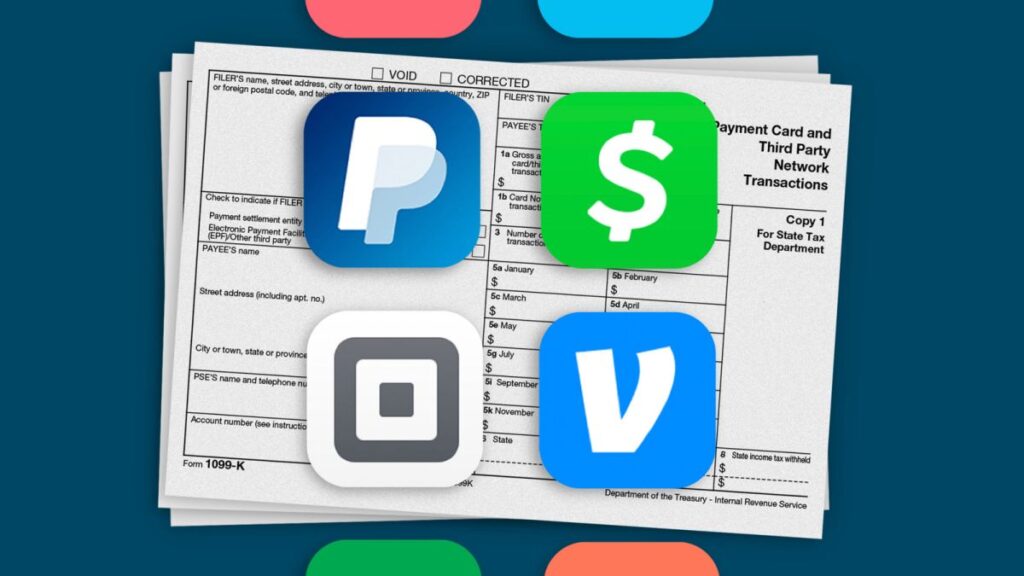
As digital payment platforms like PayPal, Zelle, Venmo, and CashApp become integral to personal and business transactions, the IRS has updated reporting requirements to ensure accurate income reporting. These changes impact how payments received through these platforms are reported and taxed. This article provides a comprehensive overview of the IRS’s updated guidelines, their implications, and steps to ensure compliance in 2025.
Background on Form 1099-K Reporting
Form 1099-K, “Payment Card and Third Party Network Transactions,” is used by payment settlement entities to report certain payment transactions to the IRS and taxpayers. Historically, third-party settlement organizations (TPSOs) were required to issue Form 1099-K if a user had over 200 transactions totaling more than $20,000 in a calendar year. However, legislative changes have adjusted these thresholds to improve income reporting accuracy.
Key Changes to Form 1099-K Reporting Thresholds
1. Transition Relief for 2024
In response to feedback and to facilitate a smoother transition, the IRS announced that for the calendar year 2024, the Form 1099-K reporting threshold for TPSOs is set at $5,000. This means that for 2024, TPSOs are required to issue Form 1099-K to users who receive over $5,000 in aggregate payments for goods and services, regardless of the number of transactions.
2. Implementation of the $600 Threshold
Starting in the calendar year 2025, the reporting threshold will further decrease to $2,500, with no minimum transaction count. This aligns with the threshold established by the American Rescue Plan Act of 2021. Consequently, for 2026 and subsequent years, TPSOs must issue Form 1099-K for any user receiving over $600 in payments for goods and services within the year.
Implications for Taxpayers
1. Increased Reporting Obligations
The lowered thresholds mean that more individuals and businesses will receive Form 1099-K, reflecting income that must be reported on tax returns. It’s crucial to distinguish between personal transactions (e.g., reimbursing friends) and business transactions to ensure accurate reporting.
2. Potential for Backup Withholding
TPSOs that have performed backup withholding for a payee during the calendar year 2024 must file Form 945 and Form 1099-K with the IRS and furnish a copy to the payee. For calendar year 2025 and beyond, the IRS will enforce penalties under sections 6651 or 6656 for a TPSO’s failure to withhold and pay backup withholding tax.
3. Importance of Accurate Record-Keeping
With the expanded scope of Form 1099-K issuance, maintaining detailed records of all transactions becomes essential. This practice ensures that taxpayers can substantiate income reported and claim appropriate deductions.
Steps to Ensure Compliance
1. Separate Personal and Business Transactions
Utilize separate accounts for personal and business activities on payment platforms to prevent misclassification and simplify record-keeping.
2. Maintain Comprehensive Records
Keep detailed records of all payments received and expenses incurred. This documentation is vital for accurate tax reporting and in the event of an audit.
3. Consult Tax Professionals
Engage with tax professionals to navigate the complexities of the new reporting requirements and to ensure full compliance with tax laws.
Conclusion
The IRS’s updated reporting thresholds for payments received through platforms like PayPal, Zelle, Venmo, and CashApp reflect an effort to enhance income transparency and tax compliance. By understanding these changes and implementing diligent financial practices, taxpayers can ensure compliance and avoid potential penalties.
At MCMG Tax, we’re here to help you navigate these changes and prepare for tax season with confidence. From bookkeeping to tax preparation, our experts can streamline your finances and maximize your deductions. Contact us today to ensure your business is ready for 2025!
